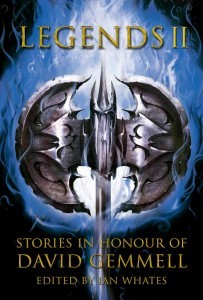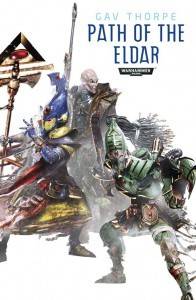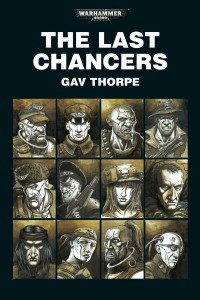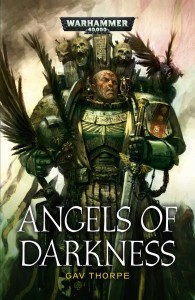How to Write a Story
 A conversation I have had on and off for years with other writers revolves around a fairly simple premise: because people are taught how to functionally write at school they assume that they can be ‘a writer’. We have a self-awareness when it comes to painting, sculpting, other artistic forms. We know that our stick man does not put us in the same category as Rembrandt. (Usually, there are always exceptions…) This does not seem to apply to writing.
A conversation I have had on and off for years with other writers revolves around a fairly simple premise: because people are taught how to functionally write at school they assume that they can be ‘a writer’. We have a self-awareness when it comes to painting, sculpting, other artistic forms. We know that our stick man does not put us in the same category as Rembrandt. (Usually, there are always exceptions…) This does not seem to apply to writing.
I don’t read other people’s unpublished stuff very much at all, for a lot of reasons, but now and then I’ll get handed something at a convention or other event and I’ll take a look. Sometimes it’s good, often it’ll need work, sometimes it’s just a collection of words seemingly thrown semi-randomly at a page. It’s hard to give feedback on those ones because it boils down to, “Go away and read some books on sentence construction, basic grammar and narrative form.” I’ll usually pick on one thing, often a massively varying tense or perhaps an idiomatic approach to dialogue tags, and go with that.
In a way, that’s not the worst type of work to read. The one’s that can be really tricky to comment on are those that are competently or even well-written in a technical sense but, in any respect, are utterly lacking an actual story. These pieces proceed from one event to another, sometimes portrayed in entertaining fashion, but fundamentally do not contain a narrative. Nothing actually happens in any meaningful way.
So, I’m going to ask a few simple questions and you have to answer them about your story. The questions are the same, regardless of whether it’s a flash fiction piece or a multi-volume novel series. There are no correct answers, but there has to be some kind of answers.
What is the Story About?
Often when I ask this the answer starts something like, “Well, there’s the elf, right, and she’s going to be a princess except there’s a dragon, and…” Depending on my mood I’ll let them finish this ‘pitch’ or I’ll interrupt at that point and ask the question again.
The plot is not what a story is about. A theme, a question, a message. These are what stories are about. The plot is how the subject is conveyed through a prose narrative. Another way of looking at this is to ask yourself ‘Why do I want to write this story?’. Money, perhaps. Haha haha. Anyway. As a creative, why do you want to write this particular story? Even when I’m writing about Space Marines blowing up Orks I try to make it about something, be it honour, the horrors of war, brotherly love, the nature of hatred, or something else that fits within the broader themes of 40K, Warhammer or Warhammer Age of Sigmar.
 What do you want to say, make the reader think about or feel?
What do you want to say, make the reader think about or feel?
My story The Blessed and the Cursed in Legends 2 contains soldier-priests, brigands and a spectral host of the damned. It is about the justice of violence and the nature of forgiveness.
How does the Story End?
This is a bit more of a personal peccadillo and part of my process, but I almost always decide first how the story ends. For me this is fundamentally wrapped up in answering the first question. If the theme is a discussion on fear, the closing scene or plot point is going to be about fear, either overcoming or succumbing depending on how things go.
Like the first question, this doesn’t have to be about plot or details, though it can be. If your story is about something, that needs to be the last thing you leave with the reader. A story about sacrifice? Whether the act happens at the beginning, middle or end, the parting thought of the reader should be about that moment. You want to write about the effect of the internet on communication? The finale of the story needs to address this issue directly, whether a resolution or open-ended for the reader to decide.
You might almost think of it like the call-to-action. The last word on the subject is literally yours, so make sure you know how you want to use it.
This might well be something very specific. ‘They all lived happily until the end of their days’ completes many fairy tales, but usually sums up the story. Bad things were overcome and happiness prevailed.
Thinks about these:
“He loved Big Brother.”
“The creatures outside looked from pig to man; and from man to pig; and from pig to man again; but already it was impossible to say which was which.”
And my personal favourite, “He drew a deep breath. ‘Well, I’m back,’ he said.”
The first line I ever wrote about the Last Chancers was “Ever been ten strides from death?”. It was that notion that launched the whole thing. Pretty much sums it all up, being part of a suicide mission. I’ve tried to be similarly succinct with the closing lines:
Deliverance –
‘There’s another reason I’ll fight my damnedest, sir!’
He spins around and looks at me, an eyebrow raised in question.
‘I – I ain’t gonna give you the fragging satisfaction of seeing me dead just yet, sir!’
‘I knew you would come back to me, Kage,’ the Colonel purrs savagely. ‘You are one of mine. You always will be. I can kill you now, or I can give you one more Last Chance.
Oh frag.
Liberty –
‘Schaeffer!’ I shriek. ‘Come back here you bastard!’
He caught up with the other man in the small elevator chamber, where a nervous guard stood. When the warden saw the scarred man his eyes widened in surprise and fear. He glanced at the officer in the heavy coat before fixing his gaze on the newly arrived prisoner. The guard gulped heavily, and shuffled nervously back a pace.
The prisoner turned and winked.
‘Don’t worry,’ the man said, a savage grin wrinkling his many scars. ‘I won’t be here forever.’
Now I truly understand what it means to have a Last Chance. I’m glad I finally took it.
(As an aside, I really would like to write more Last Chancers. Ten years ago I was done with Kage and the Colonel, but I miss them now. I don’t think that’s likely though.)
This is getting to the real meat of what a story is. Narrative is nothing more than the resolution of a conflict. That can be quite dull – I needed some bread so I went to the shops and bought bread – or quite exciting – I needed some bread so I fought my way across the wasteland to raid the old bakery.
In Screenwriting 101 Neill D. Hicks identifies the external and internal conflicts as being the pivot of a story. The external conflict is what happens – the aliens to be defeated, the funeral to be attended – but in order to resolve the external conflict an internal conflict must be addressed first. The mismatched cops must learn to live with each other. The main character has to take control of their life, or perhaps let themselves be controlled. Acceptance of self, defiance or acceptance of norms, the breaking of taboos, taking risk or accepting responsibility, these are all internal conflicts that the narrative may require a character to resolve before the plot opposition can be overcome.
The conflict doesn’t have to be quite as deep as that, but it does have to cause problems to the characters beyond a physical obstruction or threat. Ben Counter’s classic Warhammer 40,000 short story Words of Blood is about asking what happens when Black Templars Space Marines face a force dedicated to the Chaos God of War. The Black Templars never retreat. But against an enemy that literally thrives on battle, retreat is the only way to win…
It’s nice to see conflicts used to turn tropes on their head a bit. Subverting or inverting the expectations of the reader might be a theme (going back to question one). Often the maverick cop and by-the-books cop have to do something wacky, because as creatives we want to see independence rewarded. Rarely do we see the maverick have to toe the line in order to get the collar. Or perhaps an epilogue where the case gets thrown out by the judge because the maverick ‘bent the rules’.
Pretty much all of my Dark Angels stories and novels have an underlying conflict of secrecy and lies. Every overt conflict of bad guys to shoot with bolters comes about or is hampered by ten thousand years of internal division and fragmentation of truth. Unfortunately for the Dark Angels, they are simply beyond being able to repair this damage and pretty much bad things continue to happen – a case where they might overcome the overt conflict but make no progress on the inner conflict. With the exception of Angels of Darkness, my first ever Dark Angels novel, which deliberately does the exact opposite, against which later calamities are measured.
Does Anyone Care?
You might have read advice about making sure people care about your protagonist. You don’t have to like them but you have to care about them.
This isn’t that advice, although it is related.
This is about whether people will care about the story. I dearly love my son Sammy, as you expect, and couldn’t care more for his personal happiness and wellbeing. This in no way makes me any more invested in a story about Sammy eating his breakfast. Unless, you know, he did it in an awesome way that was somehow a major milestone for him, like not getting it in his hair.
Think of it like this. If someone else was leading the story would the reader still care? And, conversely, if your character was in another story would people still care? The reader needs to be invested in the character, but also in what the character is doing.
‘Caring’ doesn’t even mean rooting for or supporting. It simply means that the story should affect us beyond the page. Does it confirm or challenge our beliefs or perspective? Is the story related in some way to the world we inhabit, its themes concurrent with what we think and consider when we’re not reading books, or perhaps introducing a concept that we will think about and consider later?
This is especially important if you accept that the vast majority of genre stories – sci-fi, fantasy and horror – are about unreal people doing unreal things in unreal places (often with unreal monsters trying to kill them). If the overt story is fundamentally ‘made up’ the texture underneath has to work hard to make anything relevant.
 My Path of the Eldar series poses questions about identity – the notion of self and how we are defined by our changing interactions with those around us. In this case the eldar literally reinvent themselves as they go through their lives, either evolving or becoming trapped in one psychological aspect. Wondering how we fit in, how we are viewed by others, and whether we will be able to adapt in a constantly changing world are issues that confront each of us.
My Path of the Eldar series poses questions about identity – the notion of self and how we are defined by our changing interactions with those around us. In this case the eldar literally reinvent themselves as they go through their lives, either evolving or becoming trapped in one psychological aspect. Wondering how we fit in, how we are viewed by others, and whether we will be able to adapt in a constantly changing world are issues that confront each of us.
Being a Good Reader
Other writing advice will tell you to read well. ‘What goes in, comes out’, it says. All true. It is important to identify what we each think of as ‘good’ writing and, if not emulate it, attempt to understand why it works. Often this is applied to the craft side of writing – how did a scene make you feel, what did the use of dialogue or description do, how did the writer convey a particular emotion or action?
It’s equally important to think about the story in these terms. Ask the questions above of what you read as well as what you create. Peeling back the veneer of the language to see the emotional engine underneath will help you translate that feeling you get into your work.
Conversely, never only study success, you should learn from failure too. If you read a story that doesn’t do it for you, work out why. If you’re tempted to give up, try to understand why you don’t care enough to continue. If you enjoy a story but it leaves you with a ‘meh’ feeling, have a think about what could have been done for the ending to have more impact. Remember that a story is made up of both narrative and delivery; separate out which is working or not working for you.
Four questions. Not always simple, but always important. Answer them and you have a story worth writing and worth reading. Then all you have to do is start typing…
I’d be interested to hear about the questions other writers ask to help them focus on a narrative – please use the comments section to share your thoughts and experiences.
**To make sure you don’t miss out on any blog posts, you can keep up-to-date with everything Gav by signing up to my monthly newsletter. As a bonus, every other month I randomly pick a newsletter subscriber to receive a free signed copy of one of my books.**





